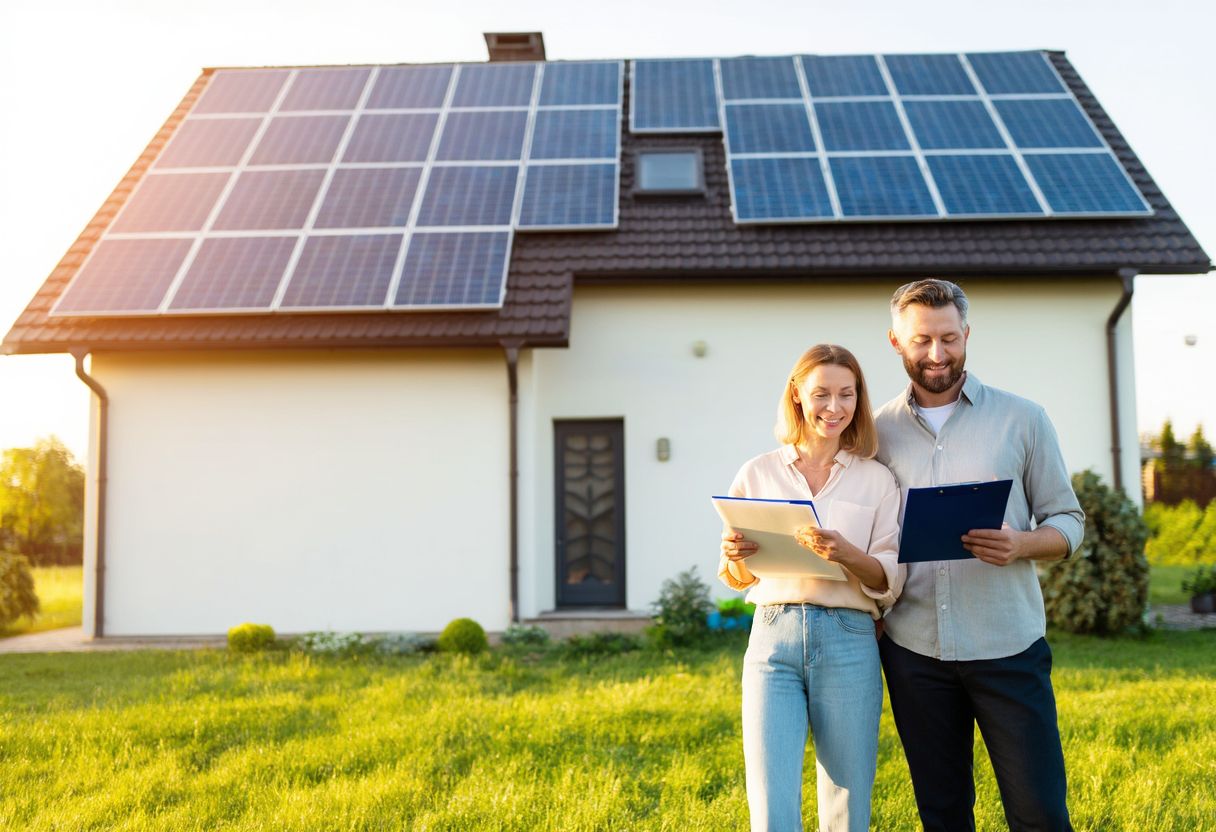Exploring the Benefits of Solar Leasing: Is It Right for You?
Solar leasing presents a compelling opportunity for homeowners looking to go green without the upfront costs of solar panel installation. This article demystifies solar leasing, examining its benefits, potential drawbacks, and considerations for those contemplating this renewable energy option. Discover how solar leasing can save you money while promoting sustainability.
Understanding Solar Leasing
Solar leasing is a financial arrangement that allows homeowners to install solar energy systems without the upfront cost. In this system, a third-party company owns the solar equipment and leases it to the homeowner for a fixed monthly payment. This model is increasingly popular as it lowers the barrier to entry for solar energy adoption. Solar leasing typically involves a long-term contract, often ranging from 20 to 25 years. Importantly, this means homeowners can enjoy immediate savings on their energy bills while contributing to environmental sustainability. However, users should thoroughly review the leasing terms and conditions, as they can vary significantly across providers. Overall, solar leasing facilitates a smooth entry into renewable energy, paving the way for a more green-conscious future.
Financial Advantages of Solar Leasing
One of the most compelling reasons to choose solar leasing is its financial accessibility. Homeowners can capitalize on significant energy savings without the burden of high initial costs associated with purchasing a solar energy system outright. With solar leasing, monthly payments are often lower than traditional energy bills, leading to immediate financial relief. Furthermore, most solar leases include maintenance services, alleviating homeowners from dealing with unexpected repair costs. As energy prices continue to rise, solar leasing becomes more attractive, providing predictable and lower energy costs over time. In addition, residents can potentially benefit from state incentives and tax credits typically available for renewable energy initiatives. This financial model not only supports budget-conscious consumers but also promotes widespread adoption of solar energy, thus accelerating the shift towards cleaner energy sources.
Considerations When Choosing Solar Leasing
Despite the numerous benefits, there are essential factors to consider when opting for solar leasing. For instance, homeowners should assess the total financial commitment, including the duration of the lease and any potential escalations in monthly payments. Ownership remains with the leasing company, which means that homeowners miss out on certain tax benefits and incentives that could come with owning a solar energy system. Additionally, it's crucial for buyers to evaluate the credibility of the leasing provider. Researching customer reviews, financial health, and customer service responsiveness can help mitigate risks associated with long-term contracts. Moreover, evaluating how solar leasing impacts home value is critical; some buyers may prefer homes with owned solar systems, affecting resale potential. Ultimately, understanding the nuances of solar leasing helps homeowners make informed decisions.
Environmental Impact of Solar Leasing
Solar leasing not only influences personal finances but also makes a significant contribution to environmental sustainability. By choosing to lease solar panels, homeowners effectively reduce their carbon footprint and reliance on fossil fuels. Many leasing programs install solar systems designed for maximum efficiency, contributing to lower greenhouse gas emissions over time. Additionally, increased adoption of solar leasing can propel the growth of the renewable energy sector, encouraging further technological innovation and infrastructure development. Studies show that residential solar leasing expands clean energy usage, fostering cleaner air and healthier communities. Thus, engaging with solar leasing is a step towards supporting larger environmental goals, which is vital in combating climate change. As awareness grows, adopting solar leasing is not just a personal choice but a collective responsibility.
Making the Switch: User Experience Insights
Switching to solar leasing can be an empowering experience for homeowners looking to harness renewable energy. Many users report high satisfaction levels with their solar leasing choices, often highlighting the responsiveness of leasing companies and the ease of installation. The process typically starts with a consultation, where experts assess the property and provide tailored solutions. From installation to ongoing maintenance, leasing companies handle most details, allowing homeowners to relax and enjoy their new energy solution. Solar leasing also fosters community engagement, with many programs encouraging local involvement and promoting public knowledge on solar energy benefits. Users appreciate not just the energy savings, but the educational aspect surrounding solar energy and its impact. Therefore, the personal journey of leasing solar energy heralds not only utility costs alleviation but also a deeper connection to environmental initiatives.
Conclusion: The Future of Solar Leasing
In conclusion, solar leasing presents an opportunity for homeowners to participate in the renewable energy revolution without the significant financial burden of upfront costs. While there are factors to consider, such as total financial commitments and implications for home value, the benefits often outweigh the drawbacks. As technology and infrastructure for solar energy continue to evolve, solar leasing will likely play a vital role in sustaining growth within the renewable energy market. Engaging with solar leasing not only supports individual financial goals but also fosters a shift towards a more sustainable future. For those considering solar options, understanding solar leasing can be the gateway to a brighter, greener tomorrow.
